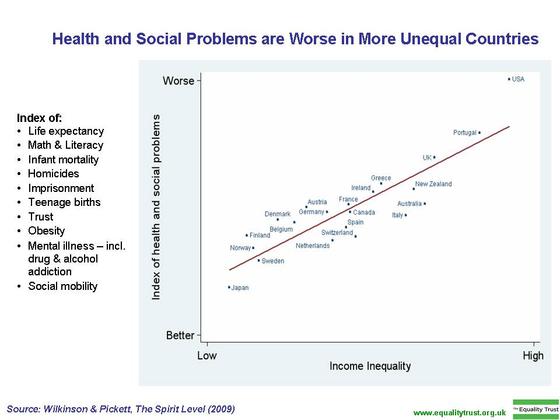Inequality Hurts: The Unhealthy Side Effects of Economic Disparity
By Shannon Hughes
September 30, 2011
Lorem ipsum dolor sit amet, consectetur adipiscing elit. Pellentesque tempor elit mi, ac mattis nisl congue eget. Phasellus dictum ullamcorper mauris, et venenatis justo pellentesque et. Integer ut erat fermentum, interdum est quis, bibendum leo. Ut ullamcorper velit ut enim bibendum egestas. Vestibulum pharetra elementum ligula id fermentum. Vivamus augue lacus, imperdiet et sapien eget, hendrerit imperdiet ipsum. Mauris mi libero, volutpat non eros non, cursus fermentum lacus.
Pellentesque dapibus mi in leo placerat elementum. Etiam quis felis eget lorem dignissim venenatis. Vivamus risus mi, placerat sit amet nisl sollicitudin, placerat facilisis diam. Duis sit amet ornare justo, ac blandit felis. Vivamus rutrum arcu sollicitudin mauris eleifend accumsan. Praesent cursus bibendum elit. Aenean pulvin ar felis ipsum, ut ultrices metus vulputate dapibus. Integer aliquet eleifend lorem ac mattis. Nunc hendrer it nisl tincidunt, malesuadadolor et, rhoncus risus. Sed pharetra sed ipsum et porta. Morbi gravida nibh vitae ex porta pellentesque. Etiam a velit vitae dui laoreet laoreet. Curabitur vel ligula sed metus dictum sagittis. Sed at ex at lorem accumsan accumsan at vel urna. Curabitur scelerisque in mi eget cursus.










 e White House on the idea of a summit on the wealth gap. We still intend to meet our goal of 10,000 signatures on the petition, and we will deliver all of them in future meetings, as we continue to educate elected officials as well as the public on the causes and consequences of the wealth gap in our country, and advocate for responses.
e White House on the idea of a summit on the wealth gap. We still intend to meet our goal of 10,000 signatures on the petition, and we will deliver all of them in future meetings, as we continue to educate elected officials as well as the public on the causes and consequences of the wealth gap in our country, and advocate for responses.
